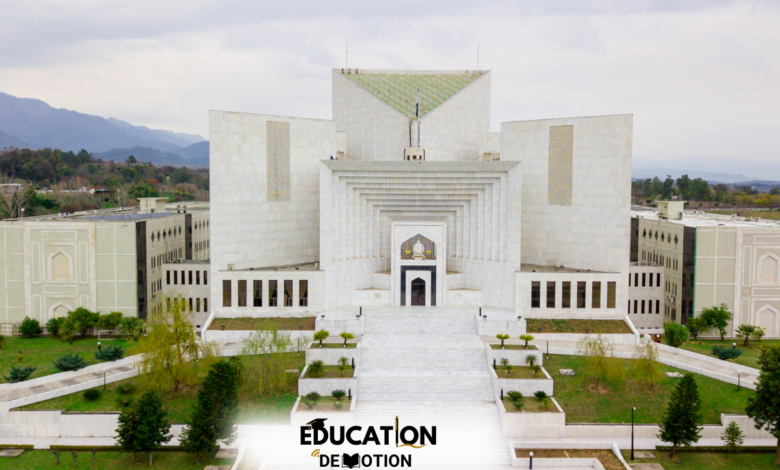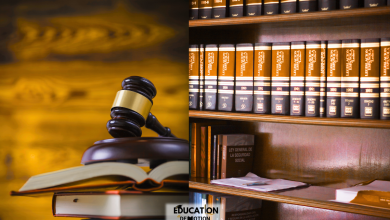Supreme Court of Pakistan: The Role and Structure

The Supreme Court of Pakistan stands as the highest judicial authority in the country, ensuring justice, fairness, and the rule of law. Acting as the guardian of Pakistan’s Constitution, it is a vital institution that upholds democratic values and protects the fundamental rights of citizens. In this blog, we delve into the Supreme Court’s structure, its jurisdiction, and its importance in shaping Pakistan’s legal and political framework.
Understanding the Supreme Court of Pakistan
The Supreme Court of Pakistan serves as the apex court in the judicial hierarchy. It wields significant powers, from interpreting the Constitution to addressing cases of public importance. Whether resolving complex legal disputes or safeguarding constitutional values, this court plays a central role in the nation’s governance.
At its core, the Supreme Court exists to ensure accountability and justice. In a rapidly evolving world, its ability to adapt to societal changes while preserving the sanctity of the Constitution highlights its importance.
Historical Background of the Supreme Court of Pakistan
The roots of the Supreme Court can be traced back to Pakistan’s independence in 1947. Initially established under the Government of India Act 1935, it gained prominence after the promulgation of the 1956 Constitution. Over the decades, the institution evolved significantly, adapting to constitutional changes in 1962, 1973, and beyond.
Despite facing challenges, such as periods of martial law and judicial activism, the Supreme Court has demonstrated resilience. It has played a pivotal role in ensuring the balance of power among Pakistan’s executive, legislative, and judicial branches.
The Structure of the Supreme Court
The Supreme Court of Pakistan consists of the Chief Justice and a team of other judges appointed by the President, as per the Constitution. Here’s an overview of its structure:
- Chief Justice of Pakistan (CJP): The highest-ranking judge who leads the Supreme Court and represents its authority.
- Judges: The court can have up to 17 judges, including the Chief Justice, each bringing expertise in various legal domains.
The bench system allows the court to divide into smaller panels for hearing cases, promoting efficiency while handling diverse matters.
Jurisdiction of the Supreme Court
The jurisdiction of the Supreme Court of Pakistan spans across multiple areas. Broadly, it operates under three primary categories:
1. Original Jurisdiction
The Supreme Court has the authority to address disputes between the federal government and provinces or among provinces themselves. Matters related to the interpretation of the Constitution also fall under its original jurisdiction.
2. Appellate Jurisdiction
This refers to the Supreme Court’s role in hearing appeals against decisions made by lower courts, such as the High Courts. Whether it’s civil, criminal, or constitutional cases, the appellate jurisdiction ensures justice through a higher review process.
3. Advisory Jurisdiction
The President of Pakistan can seek the Supreme Court’s opinion on significant legal or constitutional matters. This advisory role helps clarify ambiguities in legislation or constitutional interpretation.
Supreme Court and Constitutional Safeguards
As the custodian of Pakistan’s Constitution, the Supreme Court shoulders immense responsibility. Through judicial reviews, the court examines whether laws, executive orders, or governmental actions align with constitutional provisions. In cases where violations are identified, the court has the power to nullify such actions.
Moreover, the Supreme Court actively ensures the protection of fundamental rights, including freedom of speech, equality, and the right to life. This safeguard fosters trust in the judiciary and strengthens Pakistan’s democracy.
Landmark Judgments of the Supreme Court of Pakistan
Over the years, the Supreme Court of Pakistan has delivered several landmark judgments that have shaped the country’s legal and political landscape. A few notable examples include:
- The Asma Jilani Case (1972): This judgment declared martial law unconstitutional, setting a precedent for judicial independence.
- The Zafar Ali Shah Case (2000): It upheld the principle of the Constitution’s supremacy during times of political turmoil.
- Panama Papers Case (2017): This high-profile decision led to the disqualification of a sitting Prime Minister, showcasing the court’s accountability-driven approach.
These rulings highlight the court’s unwavering commitment to justice, even in politically sensitive cases.
Challenges Faced by the Supreme Court
While the Supreme Court is a symbol of justice, it is not immune to challenges. Some of the key hurdles include:
- Case Backlog: A growing number of pending cases strains the judicial system.
- Judicial Independence: Political pressures and external influences often threaten the court’s impartiality.
- Public Trust: Ensuring transparency and consistency in decisions is essential for maintaining credibility.
Despite these challenges, the Supreme Court’s efforts to reform and strengthen its operations remain commendable.
Supreme Court of Pakistan and Judicial Activism
Judicial activism has been a recurring theme in Pakistan’s legal history. The Supreme Court has often intervened in matters of governance and policy-making, especially during periods of political instability. While critics argue that this activism oversteps judicial boundaries, proponents see it as a necessary step to ensure accountability and uphold constitutional principles.
The court’s proactive stance has led to significant reforms and increased awareness of citizens’ rights, underscoring its relevance in a dynamic socio-political environment.
The Role of Technology in the Supreme Court
In recent years, the Supreme Court of Pakistan has embraced technology to streamline its operations. From digitizing case records to introducing e-courts, these advancements enhance efficiency and accessibility. Citizens can now access case updates and judgments online, promoting transparency and reducing procedural delays.
Technology also facilitates remote hearings, making the judicial process more inclusive and responsive, especially during emergencies like the COVID-19 pandemic.
Public Perception and Accountability
Public perception plays a crucial role in shaping the Supreme Court’s reputation. Transparency in judicial appointments, fair trial processes, and timely delivery of judgments foster trust among citizens. Additionally, the court’s ability to hold powerful individuals and institutions accountable reinforces its role as a pillar of democracy.
Supreme Court and the Future of Pakistan
The Supreme Court of Pakistan remains pivotal to the country’s progress. As Pakistan faces evolving challenges, including climate change, digital rights, and economic reforms, the court’s ability to adapt and provide effective legal solutions will be crucial.
Strengthening judicial independence, promoting legal education, and ensuring equitable access to justice are essential steps toward a more robust judicial system.
Why the Supreme Court Matters
The Supreme Court of Pakistan is more than a judicial institution; it is a symbol of hope, justice, and democracy. Its role in safeguarding constitutional values, protecting citizens’ rights, and promoting accountability cannot be overstated. By understanding the court’s functions and challenges, citizens can actively engage in strengthening the rule of law and fostering a just society.
FAQs
What is the main function of the Supreme Court of Pakistan?
The Supreme Court serves as the highest judicial authority, ensuring justice, interpreting the Constitution, and addressing cases of public importance.
Who appoints judges to the Supreme Court?
Judges of the Supreme Court, including the Chief Justice, are appointed by the President of Pakistan based on recommendations from the Judicial Commission.
How does the Supreme Court ensure constitutional compliance?
Through judicial reviews, the Supreme Court examines laws and governmental actions to ensure alignment with constitutional provisions.
What is judicial activism in the context of Pakistan’s Supreme Court?
Judicial activism refers to the court’s proactive role in addressing governance issues, often stepping into policy-making to ensure accountability and justice.
What challenges does the Supreme Court face?
Challenges include case backlogs, political pressures, and maintaining public trust. However, reforms and technological advancements aim to address these issues.
How can citizens benefit from the Supreme Court’s decisions?
The Supreme Court’s judgments often set precedents that protect fundamental rights and promote fairness, benefiting citizens across the nation.





Hi, I wanted to know your price.
Thank you for contacting us. For detailed discussion, please contact us via E-mail (davidtheprofessor7@gmail.com)
poqjdz